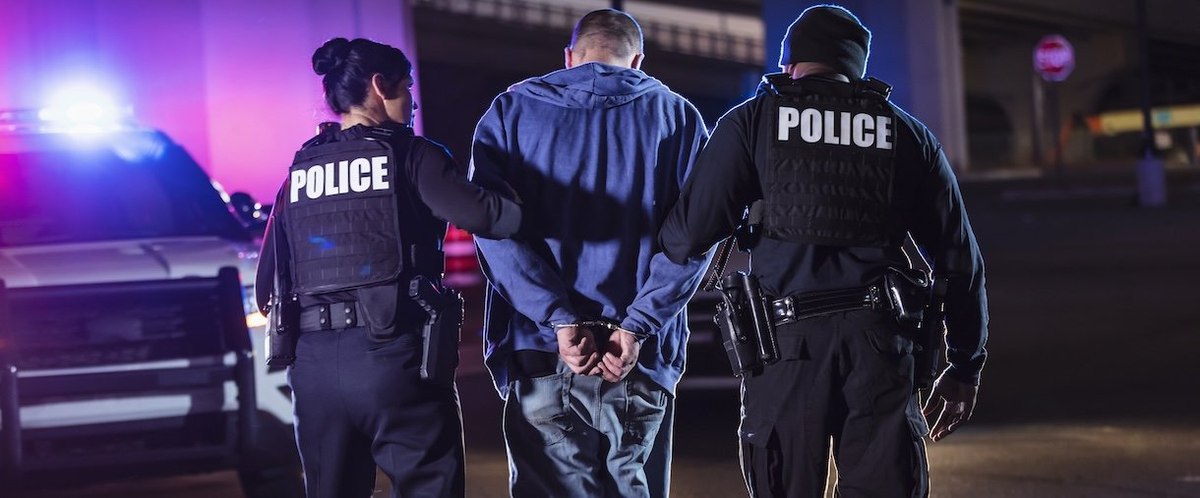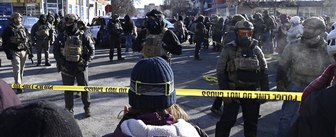A new YouGov survey asked Americans how often they think would-be criminals — including U.S. presidents — are deterred from committing certain crimes because they are concerned about being caught and punished. While majorities of Americans think people considering political corruption and illegal marijuana use are rarely or never deterred from doing so because of worries about consequences, far fewer say this is the case for murder and terrorism.
28% of Americans think that people who are considering committing the crime of smoking marijuana — which is illegal at the federal level and in some states — are never deterred from doing so by the fear of being caught and punished. About as many (27%) say people considering the crime of political corruption are never deterred from doing so because of the fear of being caught and punished. Slightly fewer say people are never deterred from fentanyl use (23%), war crimes (22%), terrorism (22%), or gang violence (21%) by the fear of being caught and punished.
The crime Americans are most likely to say people are deterred from committing because of a fear of being caught and punished — from the list of 30 crimes asked about — is murder. 14% of Americans think people who are considering committing murder are almost always deterred from doing so by their fear of being caught and punished. 18% think they usually are, 31% think they sometimes are, and 21% think they rarely are. Only 9% of Americans think people considering murder are never deterred by fear of being caught and punished.
Republicans are more likely than Democrats to say they believe people are never deterred by fear of being caught and punished from committing crimes of illegal immigration (21% vs. 12%), human trafficking (20% vs. 10%), and shoplifting (19% vs. 6%).
About one-fifth (21%) of Americans — including 25% of Democrats and 16% of Republicans — believe that U.S. presidents who are considering committing a crime are never deterred from doing so by their fear of being caught and punished. One-quarter (25%) think presidents are rarely deterred by this fear, 22% think they sometimes are, 12% think they usually are, and 7% think they almost always are.
17% of Americans think that U.S. presidents who are considering ordering an illegal action by their government are never deterred from doing so by concern the action will be blocked on legal grounds. Slightly larger shares of Americans think U.S. presidents are rarely (26%) or sometimes (27%) deterred by this concern. 11% think they are usually deterred by this, and 5% think they almost always are deterred from ordering illegal action because of concern it will be blocked on legal grounds.
Democrats are about twice as likely as Republicans to say U.S. presidents are never deterred from ordering illegal action because of concern the action will be blocked on legal grounds (22% vs. 10%).
Several of President Donald Trump’s executive orders have been blocked on legal grounds, including orders to restrict birthright citizenship, to use the National Guard for domestic law enforcement duties within California, to restrict access to federal programs for immigrants without legal status, and to remove Federal Reserve governor Lisa Cook. Some of these decisions are being appealed by the Trump administration.
Related:
- Trump's legal battle: How Americans view the case and its political impact
- Two-thirds of Americans say Donald Trump has definitely or probably committed crimes
- Where Americans draw the line on presidential behavior
See the results for this YouGov survey
— Carl Bialik and Taylor Orth contributed to this article
Methodology: The poll was conducted online among 2,325 U.S. adult citizens on two separate 2025 surveys conducted September 2 - 4 and September 3 - 7. Respondents were selected from YouGov’s opt-in panel to be representative of adult U.S. citizens. The sample was weighted according to gender, age, race, education, 2024 presidential vote, 2020 election turnout and presidential vote, baseline party identification, and current voter registration status. 2024 presidential vote, at time of weighting, was estimated to be 48% Harris and 50% Trump. Demographic weighting targets come from the 2019 American Community Survey. Baseline party identification is the respondent’s most recent answer given around November 8, 2024, and is weighted to the estimated distribution at that time (31% Democratic, 32% Republican). The margin of error for the overall sample is approximately 3%.
Image: Getty
What do you really think about President Trump, American politics in general, and everything else? Share your reality, join the YouGov panel, and get paid to share your thoughts. Sign up here.









